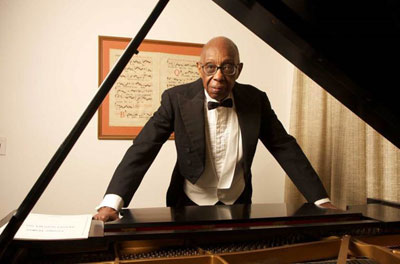
By Ryan Velez
Many people may not have heard of George Walker, who the New Orleans Times-Picayune reports has passed away in New Jersey at the age of 96. However, the story of the Pulitzer Prize-winning pianist tells a lot about his talent and the effort it took to become a success in a time where the world of classical music was packed with racism.
Born in 1922, Walker’s talent was first noticed when he was a five-year-old, when his parents saw him banging away at the keys on the piano, an instrument none of them knew how to play: “Enough is enough,” Walker recalled his mother saying. “I’m going to find a teacher for you.” He managed to graduate from high school at 14 and Oberlin College in Ohio by 18, and became the first African-American to earn a doctorate from the University of Rochester’s Eastman School of Music in 1956.
Despite his skills and accomplishments, including being the first black instrumentalist to perform with the Philadelphia Orchestra, Walker’s career was marked with struggles and limited commercial success. “He said he faced racial discrimination – “a pressure-resistant stone wall” – from managers, talent agencies and orchestras who passed over him for white performers. At the same time, he suffered agonizing stomach pain, ulcer attacks that left him hospitalized for as long as a month,” according to the Times-Picayune.
He’s mentioned that being black meant he was often pigeonholed into jazz and spirituals. “I never listened to jazz until I went to college,” he wrote in a 1991 article for the Times. “Imagine my puzzlement when Rudolf Serkin, my piano teacher, instructed me to play an accompanimental passage in Beethoven’s Opus 101 Sonata ‘like jazz.’ “
“He took these simple, elemental melodies and abstracted them so that only someone who knows what to listen for can perceive they’re buried in the fabric of the music,” said his son Gregory Walker, a violinist and former concertmaster of the Boulder Philharmonic Orchestra in Colorado. “You could think of that as a metaphor for his life. There he is working in this white, classical European idiom and mastering it. But he has a grandmother who was a slave, and is part of [African-American] culture.”

